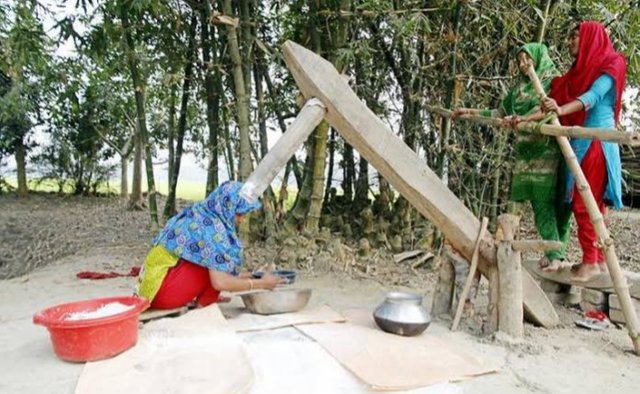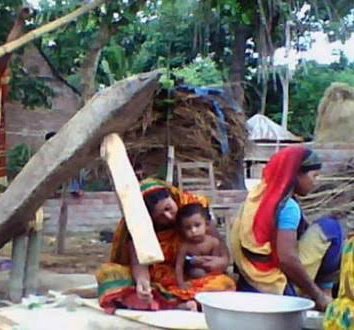The village of kulia upazila chowgacha of jessore district is missing from Bangla, one of the means of the once food-rich marai. Although the use of piles is not known due to the increasing dependence of technology of the present people, but still it is seen that in some rural areas of the country, these piles have been used again.
Especially during winter, the use of piles in nourishment is higher than other times. Once upon a time in the morning, the sound of dazanas spread around, breaking the silence.
At that time women in the family used to cover daily paddy, wheat, and barley. As well as hard work like pie making was done in the pile. In particular, rice flour was made in most of the houses for eating Phee Puli on special days including Shabe Barat, Eid, Pooja, Navan festival, Pausha parban. At that time, the village Buddha's paddy-breaking songs and pranks of dhinki would be heard all around. Moreover, large farmers of the area used to distribute rice and flour to the poor women in the area with money or paddy.
.jpg)
Many poor families used to live on the plots, selling rice in hats and bazaars. There was also plenty of nutritious and delicious rice broken into the piles. The once-oblique cover of the invention of the rice-breaking machine is almost extinct today. The need for civilization has come to the fore. Now technological excellence is vanishing along the path of rapid civilization.


The Steem blockchain is currently being attacked by a central authority in order to take control of the witnesses. If you are not managing your witness votes, please consider setting @berniesanders as your witness voting proxy by clicking here to help restore the decentralization of Steem.
Downvoting a post can decrease pending rewards and make it less visible. Common reasons:
Submit
Hello @bobita001, thank for sharing nice article story with us. It is about an unique and oldest style of milling tool called DHINGKI, I was familiar with this woody mechanical machine. We called (Acehness) this milling tool is JINGKI. This is almost similar name, isn't it? Thanks again for sharing your people culture.
Downvoting a post can decrease pending rewards and make it less visible. Common reasons:
Submit